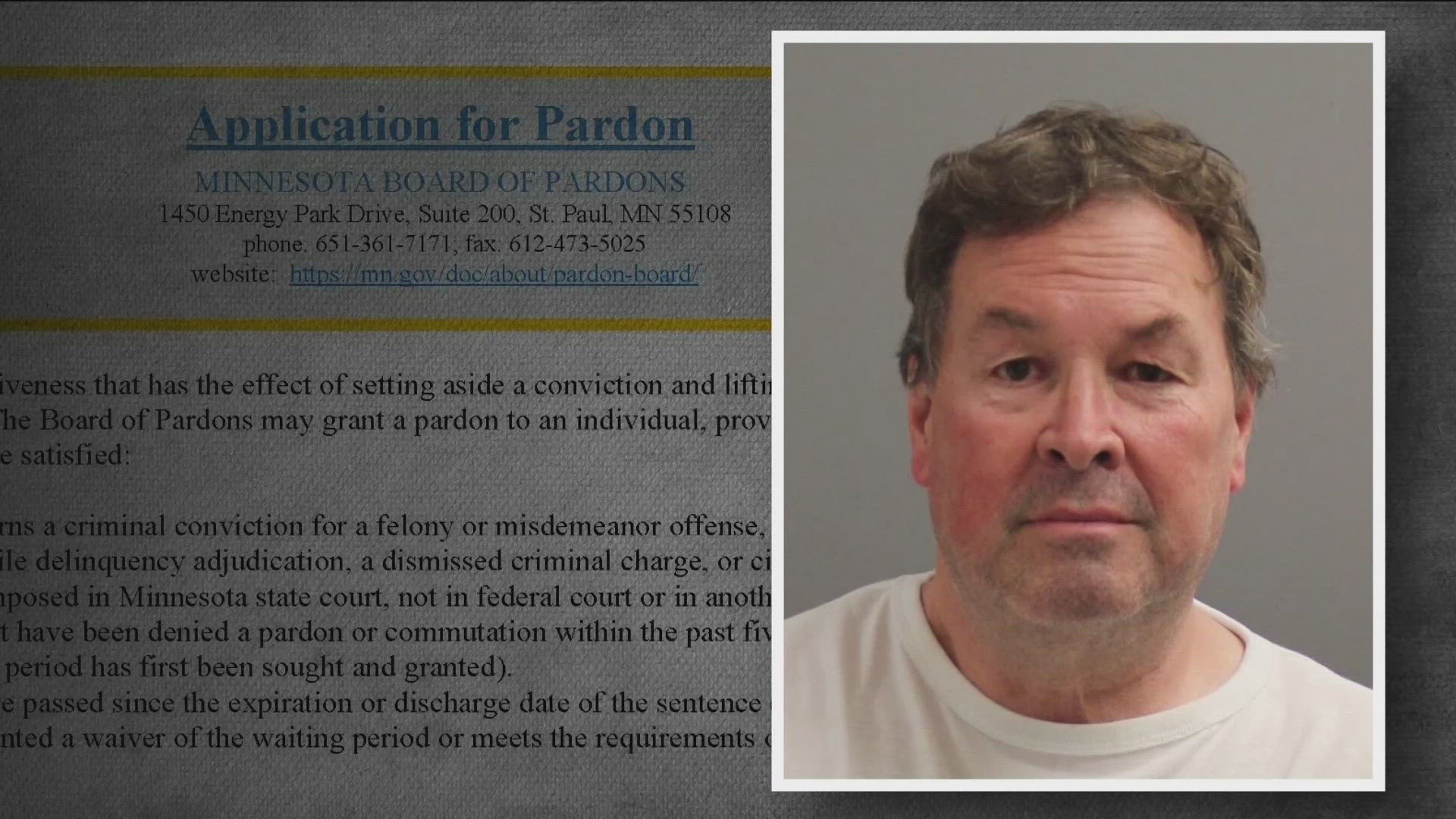SAINT PAUL, Minn — Retired Corrections Officer Guy Wicklander first shared his story on KARE 11 in February 2000 of how he was attacked by one inmate, and how his life was saved by another.
"When I was attacked, I did not know what was happening because I was knocked out. I was unconscious," Wicklander said in an interview Wednesday. "I didn't learn until later that it was Peter Shoen."
Peter Shoen was also interviewed in that KARE 11 story 24 years ago, when he was four years into his life sentence for murdering his wife Kimberly in their farm home in Truman, Minnesota. It was a brutal crime. He bludgeoned her with a pipe after she confronted him about an affair.
But when another inmate began bashing Wicklander's head with a wrench in workroom at Oak Park Heights prison, Shoen intervened and stopped the violence.
"It was no decision. It was a reaction," Shoen said in 2000.
When Wicklander recovered, he wasn't shy about giving Shoen the complicated label of "hero."
"Yes he is. Yes he is. I firmly believe in my heart that he was my guardian angel that day," Wicklander said. "When I tell this story, people ask me, 'What did they do for the guy who helped you?' Well, at this point, nothing."
So on Thursday, Wicklander will stand before Minnesota Board of Pardons to tell his story again and ask them to consider reducing Shoen's sentence now that he has served 28 years in prison.
The board consists of Gov. Tim Walz, Attorney General Keith Ellison, and MN Supreme Court Chief Justice Natalie Hudson.
When asked how the board should weigh Shoen's horrible crime and effect on the rest of his family with his good deed and time served, Wicklander answered, "That's what makes it so difficult."
The family of the victim, Kimberly Shoen, as well as the kids Peter and Kimberly had together, made it clear to KARE 11 they oppose Shoen's release. Some of them plan to speak at the pardon board hearing Thursday as well.
Wicklander said he completely understands their opinion.
The board has the option to commute the remainder of Shoen's sentence and release him from prison. Two out of the three would be needed to approve that.
If clemency is denied, Shoen would be eligible for parole in two years. Parole decisions do not involve the Board of Pardons, they are instead ultimately made by the Commissioner of the Department of Corrections.
Watch more local news:
Watch the latest local news from the Twin Cities and across Minnesota in our YouTube playlist:

